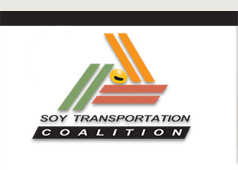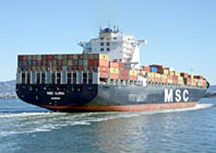 |
 |
|
| eNews • January 2015 | ||
| Promoting a Cost-Effective, Reliable and Competitive Transportation System |
||
 West Coast dockworkers and employers ask for federal mediator
West Coast dockworkers and employers ask for federal mediator
The International Longshore and Warehouse Union and Pacific Maritime Association have requested the assistance of a federal mediator in their contract talks that have been going on since May.
“In response to a joint request for assistance from the parties, collective bargaining between ILWU and PMA representatives will continue as soon as possible under the auspices of the Federal Mediation and Conciliation Service," said Allison Beck, acting director of the FMCS in a statement that was issued Monday evening. "We are prepared and ready to render prompt assistance. Deputy Director Scot Beckenbaugh, a senior FMCS mediator with extensive collective bargaining experience in this industry, has been assigned to help the parties bring these important negotiations to a mutually acceptable resolution.” FMCS said it would not release information regarding future meeting dates and locations or have any other comment on the status or substance of the negotiations.
Federal mediators helped employers and members of the International Longshoremen's Association, the dockworker union on the East and Gulf Coasts, reach a contract deal in 2012-2013 talks. Beckenbaugh was one of the mediators from the FMCS that assisted the ILA in negotiating a new contract with employers at that time.
Shippers have been calling for use of a mediator in the talks for a PMA-ILWU contract to replace the one that expired on July 1 for months.
Last month, the PMA finally agreed, saying it no longer believed it and the ILWU could reach resolution without outside aid.
"After the latest back-and-forth between the parties failed to resolve their differences, however, PMA has now agreed that outside intervention is necessary to bring the talks to conclusion, particularly given the ongoing impact of ILWU work slowdowns, which have disrupted cargo movement at the major West Coast ports of Tacoma, Seattle, Oakland, Los Angeles and Long Beacha contract," the management group said on December 22.
PMA renewed that call on December 29, saying the ILWU had misrepresented the amount of progress in the talks and that "significant issues remain unresolved, including wages, pensions, jurisdiction and work rules."
But the ILWU instead wanted carrier members of the PMA's board of directors to get involved in the talks saying none of them "have had any direct participation in negotiations" and that “indirect negotiations won’t get us over the finish line."
The ILWU had gotten support for its position from two congressmen on Monday.
U.S. Rep. Alan Lowenthal, D-Calif., said in a press release "the ILWU and the PMA should be allowed to conclude their negotiations without outside intervention" and urged both sides to stay at the table to reach a new contract quickly.
And Janice Hahn, D-Calif., said she expected “there will continue to be a push by PMA to inject a federal mediator into the negotiations. However, regardless of the involvement of a federal mediator, the negotiations between ILWU and PMA will not be resolved until PMA brings its Board of Directors to the negotiating table so that talks can resume in more productive and expedient manner. I have long urged both sides to continue to negotiate in good faith and not make unilateral moves that serve to poison the negotiations.
Hahn said “when PMA acted last week to cut the hours of workers without cause I joined with ILWU to criticize this as unacceptable. I stand ready to assist in any way to bring matters to a fair and lasting resolution and to move talks forward for the good of our ports, workers, and businesses across our country.”
The FMCS only gets involved if both parties agree to mediation, and the joint request for a mediator announced by the FMCS came after the PMA said last week that it was reducing the number of longshoremen it was hiring to work on discharging and loading containerships in the ports of Los Angeles and Long Beach.
The ILWU said that would lead to a tripling in time to work ships at the California ports, but the PMA said it made sense to slow the flow of containers off ships so that congestion within the container terminals could be eased.
In an interview with American Shipper last month Jerome T. Barrett, a former FMCS mediator and historian, said mediation does not favor management or labor.
He said while mediators have different styles, “there are some don’t dos, and one of them is to talk at length with one side and ignore the other side you never would do that. Any conversation you have with one side is to help you get them with the other side.
“You can’t mediate one side. They don’t necessarily have to be in the same room, but they need to be nearby so the mediator can move back and forth and get them talking and seeking a resolution.”
Beckenbaugh, he noted, has served as acting director of the FMCS on several occasions. “He is a well-known mediator. He is quite good,” said Barrett
Sandy Kennedy, president of the Retail Industry Leaders Association said on Tuesday in a statement "Retailers welcome the news that negotiators have embraced mediation and we urge all sides to work hastily to reach an agreement that prevents a shutdown and restores the free flow of cargo through West Coast ports. The current slowdown has stranded cargo offshore, which harms consumers unable to find the products they seek, retailers that lose sales and ultimately the economy at-large.”
SOURCE: AMERICAN SHIPPER
Soy Transportation Coalition |
|
